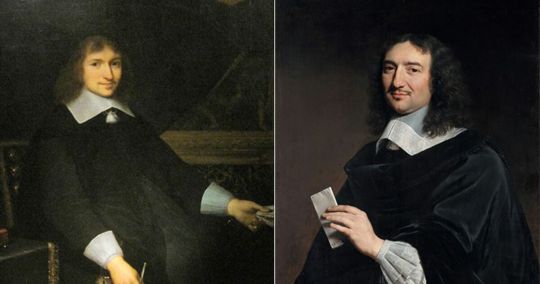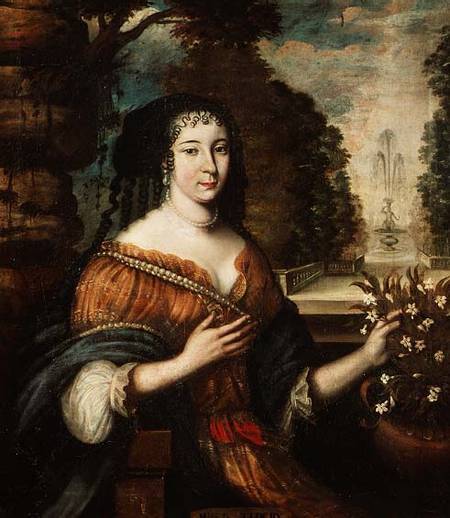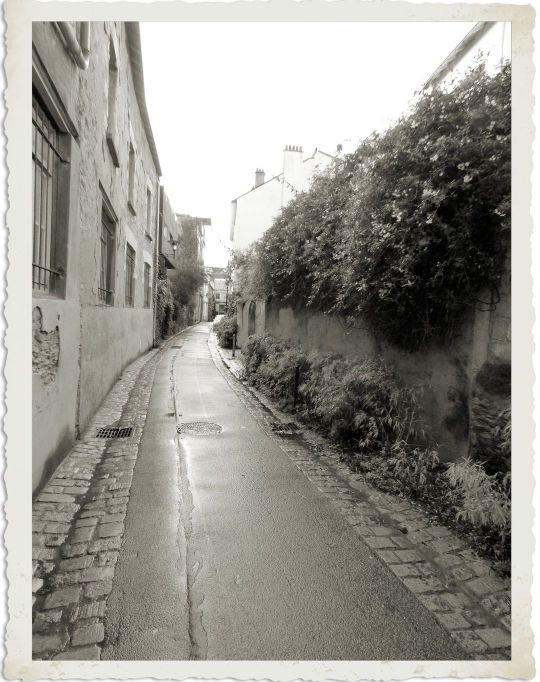#paul pellisson
Text
The Fall of Fouquet
Of those who sat in Louis XIV's council in March 1661, Nicolas Fouquet was beyond a shadow of a doubt the most charismatic and flamboyant. His background was typical of the upwardly mobile noblesse de robe, and his family like so many others had invested a fortune accumulated as drapers merchants in ennobling office. Fouquet’s grandfather and his father, François, had both served as judges in the Parlement of Paris, and his mother, Marie de Maupeou, was herself a member of another rising robe clan. The family had acquired an impressive reputation for piety, and its links to Saint Vincent de Paul, the parti dévot, and the Compagnie du Saint-Sacrement had opened additional doors to the powerful. All six of Marie’s surviving daughters entered the religious life, as would three of her five sons. Nicolas, on the other hand, was destined for a career in royal service, joining first the Parlement of Metz, and then, following the route trekked by countless aspiring young robins, by purchasing the office of maître des requêtes and serving as an intendant, attracting the attention of Mazarin in the process. In 1650, he had bought the prestigious office of procureur général in the Parlement of Paris, and having proved himself scrupulously loyal to Mazarin he was rewarded with the post of surintendant des finances in 1653.
As surintendant he was responsible for government fiscal policy in the aftermath of the Fronde and was charged with finding the funds needed to prosecute the seemingly endless war with Spain, proving remarkably able and helping to secure a French victory consummated in the Peace of the Pyrenees of November 1659. Anyone capable of surviving for long in the cut-throat world of seventeenth-century finance was, almost by definition, talented, and no less certain to become fabulously rich. Fouquet was no exception, and by 1661 he had added prodigious wealth to an already substantial family fortune that was made manifest in the construction of the beautiful château of Vaux-le-Vicomte, only a few miles from the royal palace of Fontainebleau. Designed by the architect Louis Le Vau and with its interiors decorated by Charles Le Brun, Vaux-le-Vicomte was an aesthetic triumph set within majestic gardens, created by André Le Nôtre, complete with ornamental fountains that have rightly been seen as an inspiration for Versailles. A man of taste and refinement, Fouquet forged a reputation as a generous artistic patron, and, amongst others, Molière, Pierre Corneille, Jean de La Fontaine, and Paul Pellisson benefitted from the surintendant’s largesse. Despite his family’s impeccable dévot credentials, Nicolas moved in eclectic and heterodox intellectual circles, and, much to his mother’s chagrin, his reputed good looks and genuine charm had given him an established reputation as a gallant.

(Fouquet on the left, Louis XIV on the right)
Rich, self-confident, and having proved himself to be an able and loyal servant of the crown, Fouquet, at only forty-six years of age, had every reason to suppose that a long and profitable career stretched before him. His actions in the months following the cardinal’s death were certainly not those of a man harbouring any inner self-doubts. In August 1661, he agreed to sell his office of procureur général in the Parlement to his friend Achille de Harlay, presumably confident that his interests in the court would be well served as he also had close ties with its first president, Guillaume de Lamoignon. More dramatically, on 17 August 1661, Fouquet threw one of the most notorious parties in French history. Using the magnificence of Vaux-le-Vicomte as the setting, the guests, who included large swathes of the French governing elite, were treated to a sumptuous fête, with a theatrical performance directed by Molière, fireworks, and other entertainments all ostensibly in honour of the king. Popular tradition, reinforced by numerous literary and cinematic productions, maintains that Louis XIV, furious at being upstaged by a mere minister and convinced that such lavish display could only be at his own expense, swore revenge. Fouquet had undoubtedly been tactless as the interior of the château boasted a lavish state bedroom, complete with railed bed, which had been prepared as if the monarch was intending to be a regular guest of his munificent minister. Those aristocrats present were horrified that a mere robin should be so presumptuous and the king almost certainly shared their prejudices. If this was the case, he was nevertheless careful to conceal his fury and neither Fouquet nor contemporary witnesses interpreted events in quite the dramatic fashion of later commentators, and the minister continued to work almost daily with the king.
At the end of August, the monarch and his entourage began a tour of Brittany, timed to coincide with the assembly of the provincial estates. By now, the surintendant had received a number of quite explicit warnings about threats to his position and he was growing anxious. Despite his misgivings, he travelled to Nantes and while he was suffering from a fever the king had sent for news of his health, which must have helped to allay his fears. If Louis-Henri de Loménie de Brienne, who was present on the scene, is to be believed, Fouquet even had hopes that it would be Colbert who would be arrested and that his position was secure. On 5 September, the surintendant was well enough to work as normal with the king, but as he left the audience he was accosted by Charles d’Artagnan and a detachment of musketeers. D’Artagnan promptly arrested an astonished Fouquet, who is said to have exclaimed that ‘he thought that he held a higher place in the king’s esteem than anyone else in the kingdom’. If that was indeed the case, then it was a monumental misjudgement because he had just plunged into the most profound disgrace.

D'Artagnan (left) arrests Fouquet (right)
Almost immediately it became apparent that the fall of Fouquet was no momentary loss of favour. Instead it had been carefully premeditated over several months by Louis XIV and Jean-Baptiste Colbert, another aspiring robe noble who had made his fortune as the steward of Mazarin’s private fortune. Colbert not only replaced Fouquet at the head of government finances, but he also directed a trial that was intended to conclude in a death sentence against his imprisoned rival. Fouquet’s brothers, his wife, mother, and close associates were either arrested or exiled, his papers seized in circumstances that made a travesty of the law, and he was brought before a specially convoked commission, not the Parlement of Paris as would have been his right had he not sold his office to Achille de Harlay only a few weeks before. Fouquet had seriously undermined his own political position, and recent precedents were grim. Had Richelieu been directing affairs, Fouquet would have been fortunate indeed to escape the block. However, Colbert seems to have been determined to use Fouquet as a scapegoat for the endemic corruption that both men had profited from, and which had been one of the defining features of Mazarin’s ministry. Fouquet was therefore accused of péculat, an elastic term encompassing a wide range of financial misdemeanours. While burrowing around in Fouquet’s château of Saint-Mandé, the investigators also stumbled across some secret documents from 1658 outlining a strategy for revolt in the event of his arrest. Although it was clear that they were intended for use against Mazarin, not the king, it was decided to add the capital charge of lese-majesty to the existing accusations against the prisoner.

(Fouquet vs Colbert, there will be only one)
Raking up all manner of supposed earlier misdeeds against a disgracié was common practice. On this occasion it proved counterproductive, and had the government moved quickly it could conceivably have obtained a rapid judgement and the desired death sentence. Instead, it tried to dig up more and more evidence and the trial proper did not commence until 3 March 1662. Confronted by a complicated mass of financial accusations and with Fouquet putting up a spirited and effective defence of his actions, the case dragged on for over two years. Colbert and the king grew increasingly frustrated, meddling with legal procedure, seeking to intimidate judges and witnesses alike and making it clear that while they wanted to give the impression of a fair trial it should not be at the expense of a guilty verdict. Fouquet’s family and his many friends and admirers gradually recovered from the shock of his arrest and began an energetic campaign on his behalf, convincing a substantial part of public opinion that he was the victim of a vendetta. When the verdict was finally announced in December 1664, the judges did find the accused guilty of péculat, but rather than impose the death penalty as the government intended they voted by a small majority in favour of banishment and a substantial fine.
[..]
Fouquet’s spectacular fall is arguably the most dramatic and poignant example of the potentially calamitous consequences of ministerial disgrace. The first great political crisis of Louis XIV’s personal rule, it cast a long shadow and yet in many ways it marked the end rather than the beginning of a chapter as the age of the minister-favourite gave way to that of the secretary of state. Although Fouquet had escaped with his life, his draconian punishment was very much in the tradition of Louis XIII and Richelieu and arguably of late medieval monarchy. Rather than simply dismiss Fouquet and banish him from court, as a master would discard an unsatisfactory servant, Louis XIV had treated him as a criminal who had stolen from his treasury and plotted against his authority. It was a very political trial, one that brings to mind the treatment of Claude Barbin, following the murder of Concini, or that of the maréchal de Marillac, in the aftermath of the Day of Dupes. Indeed, Fouquet’s miserable existence in Pignerol almost bears comparison with that of cardinal Jean Balue, who according to popular legend was locked in an iron cage in the château of Loches after falling foul of Louis XI. The harsh treatment of Fouquet’s family and the confiscation of their property as well as the persecution of his friends and clients was again consistent with earlier practice, echoing in milder form the attacks on the Concini in 1617.
Julian Swann- Exile, Inprisonment or Death- The Politics of Disgrace in Bourbon France.

#xvii#julian swann#exile imprisonment or death: the politics of disgrace in bourbon france#louis xiv#nicolas fouquet#cardinal mazarin#la paix des pyrénées#louis le vau#charles le brun#jean baptiste poquelin#molière#jean de la fontaine#pierre corneille#paul pellisson#guillaume de lamoignon#achille de harlay#château de vaux le vicomte#jean baptiste colbert#d'artagnan#cardinal de richelieu#louis xiii#concino concini#claude barbin#maréchal de marillac
4 notes
·
View notes
Photo

Madeleine de Scudéry (15 November 1607 – 2 June 1701), often known simply as Mademoiselle de Scudéry, was a French writer.
Her works also demonstrate such comprehensive knowledge of ancient history that it is suspected she had received instruction in Greek and Latin. In 1637, following the death of her uncle, Scudéry established herself in Paris with her brother, Georges de Scudéry, who became a playwright. Madeleine often used her older brother's name, George, to publish her works. She was at once admitted to the Hôtel de Rambouillet coterie of préciosité, and afterwards established a salon of her own under the title of the Société du samedi (Saturday Society). For the last half of the 17th century, under the pseudonym of Sapho or her own name, she was acknowledged as the first bluestocking of France and of the world. She formed a close romantic relationship with Paul Pellisson which was only ended by his death in 1693. She never married.
#Madeleine de Scudéry#Mademoiselle de Scudéry#women in literature#people#portrait#paintings#art#arte#xvii century#xviii century
24 notes
·
View notes
Photo

Rue Paul Pelisson Nantes. Son nom, attribué le 27 octobre 1837, rend hommage (malgré une graphie différente) à l'homme de lettres Paul Pellisson 27 décembre 2022 Dominique Dubois #nantes#nantesfr #nantespassion#nantesmetropole #mavieenloireatlantique #igersnantes#nantesgrandangle #photoderue #urbanphotography #photography #photographiederue #rue #noiretblanc #noiretblancphotographie https://www.instagram.com/p/Cm07nchtaKE/?igshid=NGJjMDIxMWI=
#nantes#nantesfr#nantespassion#nantesmetropole#mavieenloireatlantique#igersnantes#nantesgrandangle#photoderue#urbanphotography#photography#photographiederue#rue#noiretblanc#noiretblancphotographie
1 note
·
View note
Text
Efemérides literarias: 30 de octubre
Efemérides literarias: 30 de octubre
Nacimientos
1513: Jacques Amyot, escritor y traductor francés (f. 1593).1624: Paul Pellisson, escritor francés (f. 1693).1762: André Chénier, poeta francés (f. 1794).1811: Santos Degollado, político mexicano (f. 1861).1812: Claudio Mamerto Cuenca, médico y poeta argentino (f. 1852).1836: Camillo Boito, arquitecto y escritor italiano (f. 1914).1871: Paul Valerý, escritor y poeta francés (f.…

View On WordPress
0 notes
Text
02 de junho
Bom dia a todos!...
Neste dia:
Morreu, em 1701 a importante escritora francesa Madeleine de Scudéry.
Morreu, em 1990, o fabuloso ator britânico Rex Harrison.
Morreu, em 2008, o ótimo músico estadunidense Bo Diddley.
Bo Diddley nasceu em McComb, Mississippi no dia 30 de dezembro de 1928 e morreu em Archer, Flórida em 2 de junho de 2008. Foi um influente cantor, compositor e guitarrista de blues norte-americano. Foi considerado o 27º melhor guitarrista de todos os tempos pela revista norte-americana Rolling Stone.
Sir Reginald “Rex” Carey Harrison nasceu em Huyton, Lancashire no dia 5 de março de 1908 e morreu em Nova Iorque em 2 de junho de 1990. Foi um ator de teatro e cinema britânico e ganhador do Oscar e do Tony Award. Estreou na Broadway no espetáculo Sweet Aloes, na década de 1940 e seu desempenho fez com que ele conquistasse o público americano. Quando ele foi contratado por Hollywood para fazer Anna e o Rei do Sião (Anna and the King of Siam), em 1946, ao lado de Irene Dunne ele já era um ator muito popular no Reino Unido. Mas foi na década de 1960 que ele escreveu seu nome na galeria dos grandes atores ao participar de filmes como Cleopatra, ao lado de Elizabeth Taylor e Richard Burton, vivendo o personagem Júlio César; Doctor Dolittle (1967); Agonia e Êxtase (The Agony and the Ecstasy), em 1965, como o Papa Júlio II e My Fair Lady, ao lado de Audrey Hepburn, desempenhando o papel do arrogante Professor Henry Higgins, personagem que lhe valeu o Oscar de melhor ator em 1964.
Madeleine de Scudéry, também conhecida como Mademoiselle de Scudéry nasceu em Le Havre no dia 15 de novembro de 1607 e morreu em 2 de junho de 1701. Foi uma escritora francesa. Era conhecida pelo pseudónimo de Safo. Era a irmã mais nova do escritor Georges de Scudéry. Nasceu em Le Havre, Normandia. Estabeleceu-se em Paris junto com o seu irmão. Durante a última metade do século XVII, sob pseudónimo ou com o próprio nome, ficou conhecida como a primeira mulher literata de França e do mundo. Teve uma grande amizade com Paul Pellisson.
É seu o interessante texto:
Regras para a Conversação
“– Da minha parte, disse Amithone, confesso que gostaria muito que existissem regras para a conversação, assim como há para muitas outras coisas. – A regra principal, retomou Valérie, é jamais dizer alguma coisa que fira o juízo. – Mas ainda, acrescentou Nicanor, desejaria saber mais precisamente como vós concebeis que deva ser a conversação. – Concebo, retomou ela, que no falar em geral, ela deva versar com mais frequência sobre coisas comuns e galantes do que sobre grandes coisas.
Mas concebo, entretanto, que não há nada que não possa caber ali; que ela deve ser livre e diversificada, segundo os momentos, os lugares, e as pessoas com quem se está; e que o segredo é falar sempre nobremente das coisas baixas, e bastante simplesmente das coisas elevadas, e muito galantemente das coisas galantes, sem ansiedade, e sem afectação. Assim, embora a conversação deva ser sempre igualmente natural e ponderada, não deixo de dizer que há ocasiões nas quais mesmo as ciências podem entrar de bom grado ali e nas quais os agradáveis desatinos também podem encontrar o seu lugar, contanto que sejam engenhosos, modestos e galantes. De modo que, para falar ponderadamente, pode-se assegurar, sem mentira, que não há nada que não se possa dizer na conversação, contanto que se tenha espírito e juízo; e que se considere bem onde se está, com quem se fala e quem se é. Contudo, embora o juízo seja absolutamente necessário para nunca se dizer despropósitos, é necessário entretanto que a conversação pareça tão livre que se dê a entender que ninguém rejeita nenhum dos seus pensamentos, e que se diga tudo o que vem à fantasia, sem ter nenhuma intenção declarada de falar mais de uma coisa que de outra. Pois não há nada mais ridículo do que essa gente, que em certos assuntos diz maravilhas e que fora deles diz apenas tolices. Assim, quero que não se saiba nunca o que se deve dizer e que, entretanto, saiba-se sempre bem aquilo que se diz.”
A seguir os vídeos de hoje:
0 notes
Text
High rank, knowledge, renown,
Friendship, pleasure, and possessions
--Everything is nought but wind, vapors:
To say it better, everything is nothing.
-Paul Pellisson (1624-1693)
#paul pellisson#french writer#everything is nothing#what do these things amount to in the end?#what purposes do they serve?#To whom do they serve?#existentialism#ephemeral nature of mortality
0 notes
Text
Efemérides literarias: 30 de octubre
Efemérides literarias: 30 de octubre
Nacimientos
1513: Jacques Amyot, escritor y traductor francés (f. 1593).1624: Paul Pellisson, escritor francés (f. 1693).1762: André Chénier, poeta francés (f. 1794).1811: Santos Degollado, político mexicano (f. 1861).1812: Claudio Mamerto Cuenca, médico y poeta argentino (f. 1852).1836: Camillo Boito, arquitecto y escritor italiano (f. 1914).1871: Paul Valerý, escritor y poeta francés (f.…

View On WordPress
0 notes